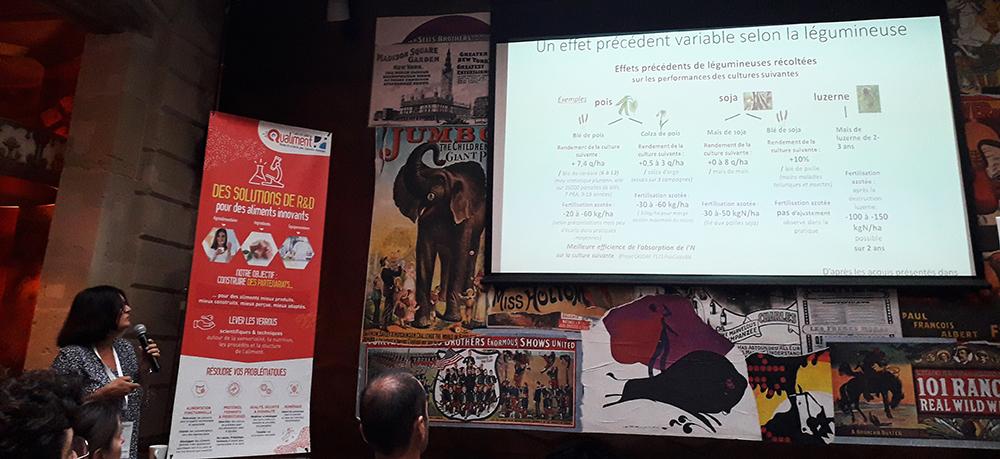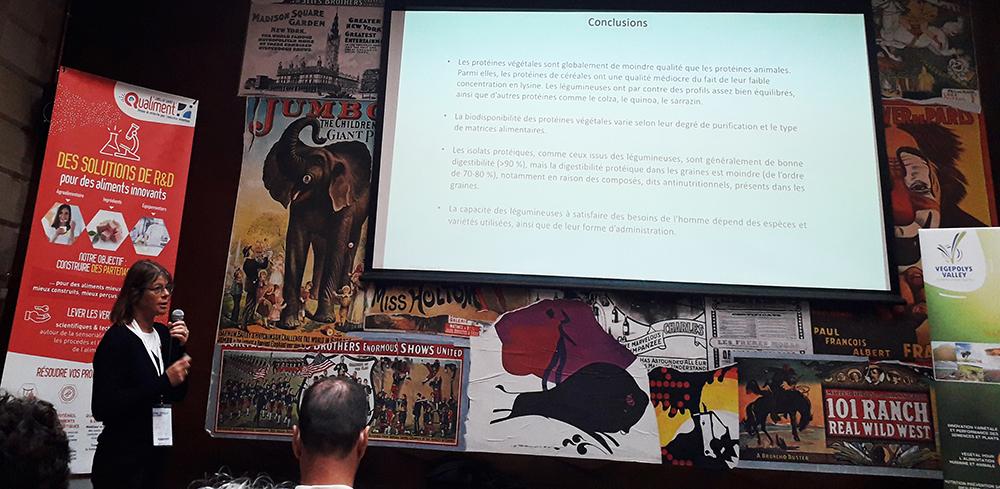Plant protein sector: boosting a new structuring and collaboration dynamic
Chargement en cours...
null
Plant protein sector: boosting a new structuring and collaboration dynamic
09 Sep 2022
Vegepolys Valley, the Carnot Institutes Plant2Pro® and Qualiment® as well as Terres Univia organised a "Panorama des Protéines Végétales, Regards Croisés Entreprise / Recherche", a day which was the occasion to share the obstacles and the key factors of success and to encourage networking between actors of different horizons to draw up an inventory of the needs and solutions in the field of sourcing, functional, nutritional and culinary characterisation of plant proteins. Its main objective was to give impetus to a new dynamic for structuring the sector and collaboration around plant proteins.
This meeting on plant proteins proved to be an opportunity to bring out solutions for the future of legumes and the plant protein sectors. Nina Rabourdin and Véronique Biarnès, two Terres Inovia experts, contributed to the debate through a workshop led by the former and a presentation by the latter, the content of which is given below.

- Véronique Biarnès, in her presentation entitled 'The deployment of seed legumes as a lever for the agroecological transition of cropping systems' (photo above), emphasised (i) solutions based on new aphanomyces tolerant genetics, (ii) on the EVA tool for repositioning peas and faba beans, for example, in historical production pedoclimatic zones, (iii) on winter/spring repositioning in intermediate zones by aiming for staggered sowing dates to avoid the hydric and thermal stresses that penalise these crops in these production basins.
- Nina Rabourdin led a workshop entitled "Variability of legume production: the levers to be used (upstream and downstream) to secure planting and ensure the competitiveness of legumes". On the sourcing side, this workshop provided an opportunity to exchange different expertises and to discuss (i) the viability and acceptability of production by farmers, (ii) the acceptability of working with quality variability on the downstream side, and (iii) the levers available to mitigate this variability at different levels (downstream, collection and production).
What else?
Other themes were addressed:
- Genetic progress, with a focus on the nutritional quality aspects of legumes and knowledge of genomes for selection assistance, was highlighted by the UMR Agroecology and Karine Gallardo.
- The research work on bruchid-resistant genomes was the subject of the Résibruche project, and the opening was made on the possible future bridges between the genomes of faba beans and lentils to compare the known areas of resistance expression for the two species with respect to bruchid.
- AgriObtentions was able to express the specificities of lentil breeding, due to the difficulty of crosses (20% success rate due to the biology of flowers), low multiplication rates and, to date, lentil does not respond to the cycle acceleration techniques used and mastered in rapeseed and wheat in particular. Despite these difficulties, AgriObtentions reports the registration of 5 new lentil varieties since 2020.
- The possibilities offered by tilling have been developed by the UMR agro-ecology to inactivate the bad taste, and the tests on the tilling line varieties as a genetic solution to this obstacle to the integration of legumes in the agri-food industries are very encouraging, since the synthesis of saponin was indeed inactivated in the tests conducted.
